Indigenous Governance Database
Land/Jurisdiction
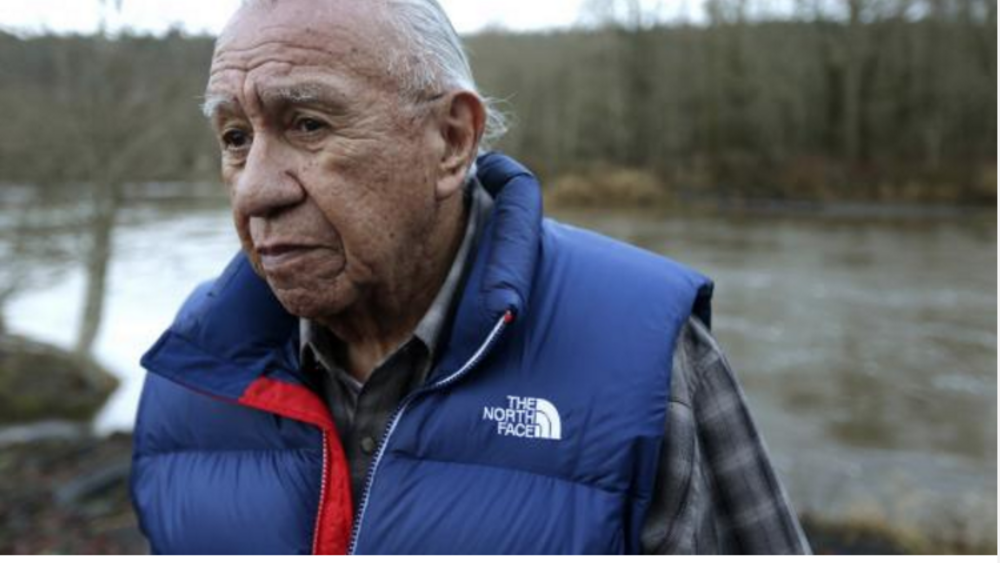
Tribal Rights Legend and Leader Billy Frank Jr. Walks On
In 2004, we celebrated 30 years since the Boldt Decision of 1974, the landmark Indian fishing rights victory, that Billy Frank Jr. fought so hard for.“Frank is widely credited as conscience and soul of the efforts by Indian people in Washington to secure their rights to a fair share of fish on…
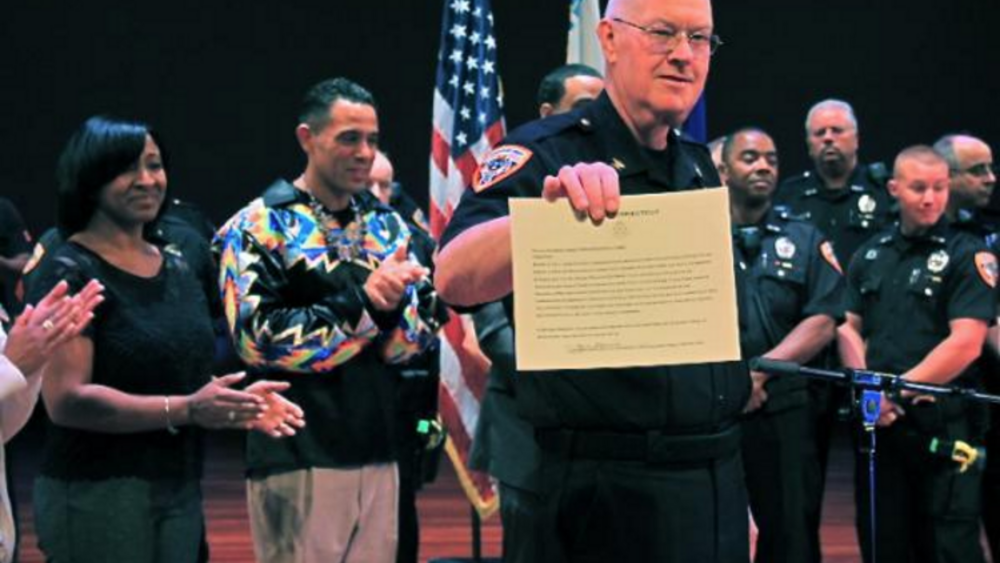
Police Protection in CT Increases: Tribes Can Now Arrest Non-Natives
On Friday, August 1, 27 members of the Mashantucket Pequot Tribal Police received the power to arrest non-Natives on tribal land. “Up until now they could only hold and detain non-tribal members until the state police could come and make the arrest,” William Satti, director of public affairs for…
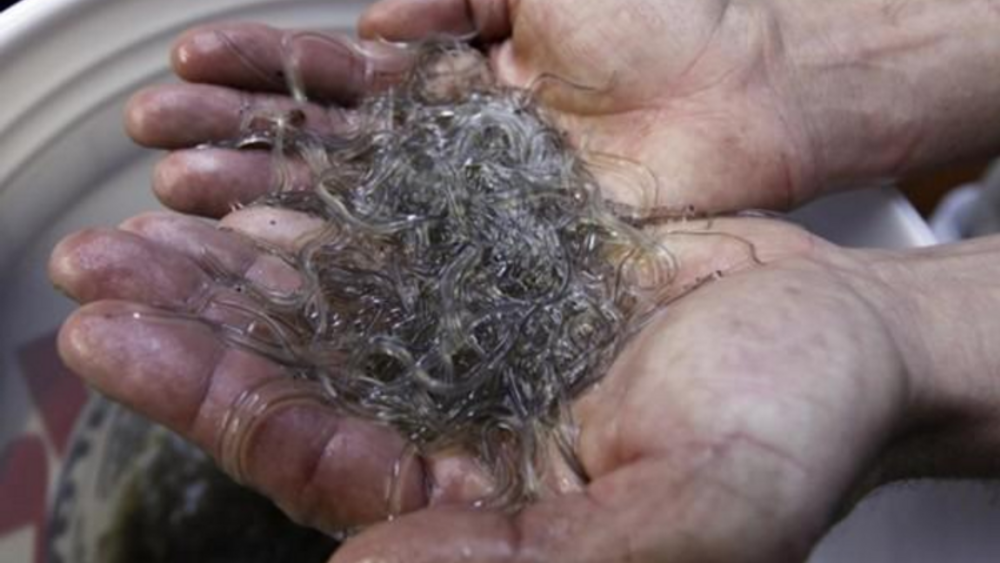
Passamaquoddy Tribe Amends Fishery Law to Protect Its Citizens from State Threat
The Passamaquoddy Tribe’s fishery law has been amended to implement individual catch quotas for the lucrative elver season that began on April 5. While the quota system conforms to a new state law, Passamaquoddy leaders stressed that the change was made to both protect tribal citizens and conserve…
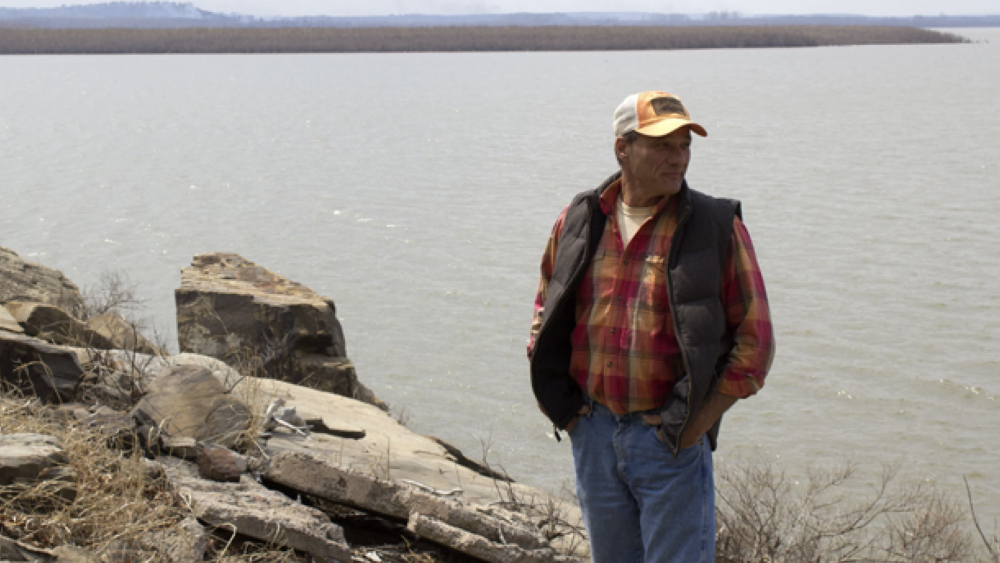
Cast-off State Parks Thrive Under Tribal Control, But Not Without Some Struggle
Rick Geisler, manager of Wah-Sha-She Park in Osage County, stands on the shore of Hula Lake. When budget cuts led the Oklahoma tourism department to find new homes for seven state parks in 2011, two of them went to Native American tribes. Both are open and doing well, but each has faced its own…
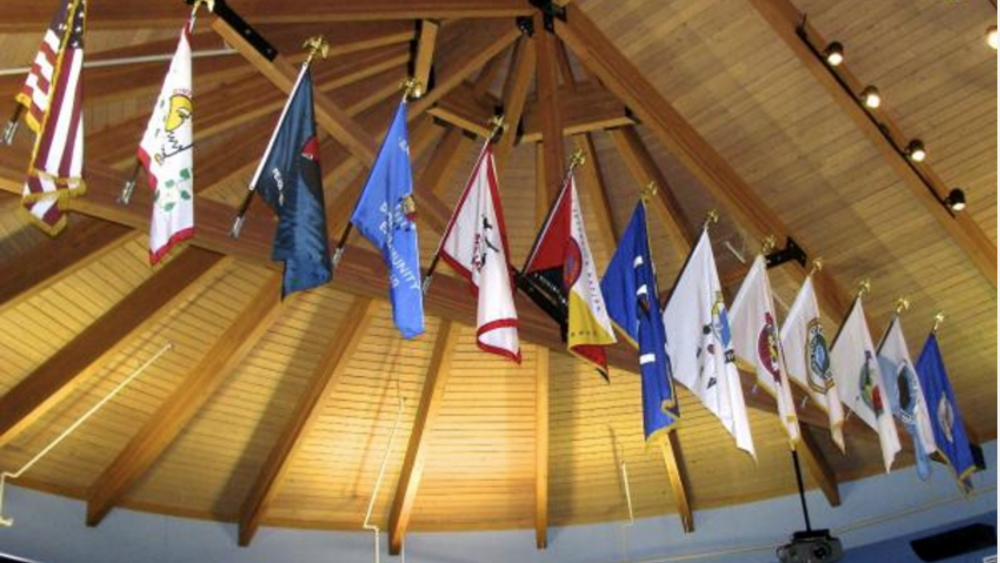
Red Lake Constitutional Reform Informational Meetings Held
The meeting at Bemidji was one leg of the second round of informational meetings conducted by the Red Lake Constitutional Reform Committee (CRC) in order to seek input and feedback from the membership regarding Constitutional Reform. Meetings are held in Duluth and the Twin Cites in addition to the…
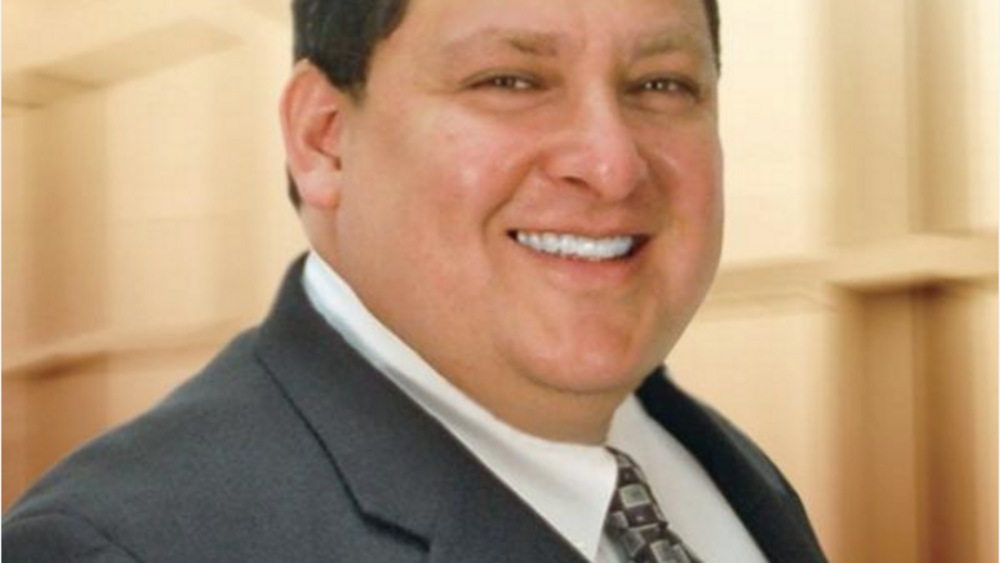
Ho-Chunk, Inc. CEO Receives Award from U.S. Department of Commerce Agency
Lance Morgan launched the Ho-Chunk, Inc. in 1994 as the economic development corporation of the Winnebago Tribe of Nebraska. Now the president and CEO is receiving the Advocate of the Year Award by the U.S. Department of Commerce’s Minority Business Development Agency (MBDA) at the end of this…
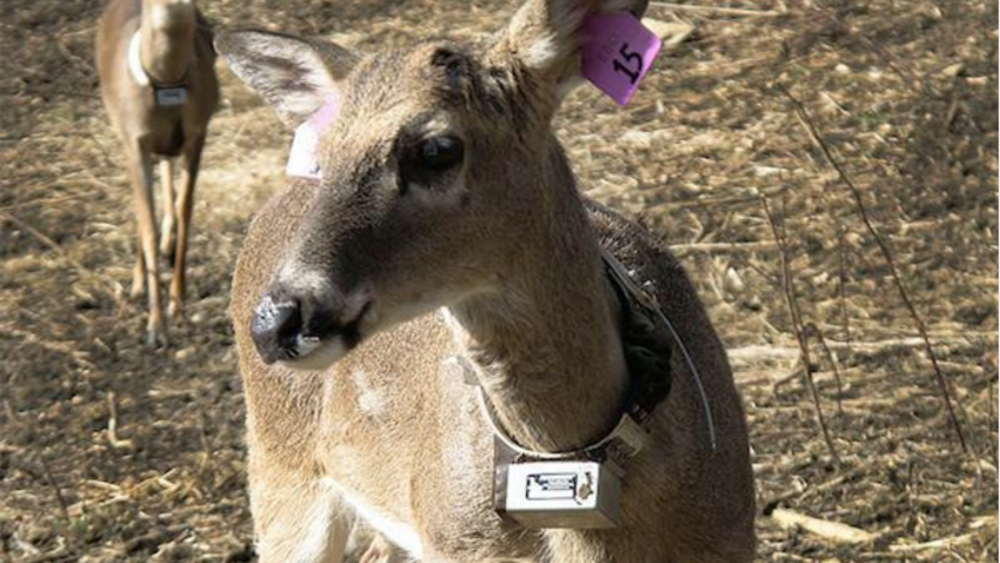
Eastern Band of Cherokee Replenishes Iconic White-Tailed Deer on Its Lands
The Eastern Band of Cherokee, deprived for centuries of the white-tailed deer that symbolizes their culture, are in the process of getting their icon back. Though deer are considered almost a pest in many parts, devouring gardens and proliferating, the Cherokee themselves, who have cherished the…
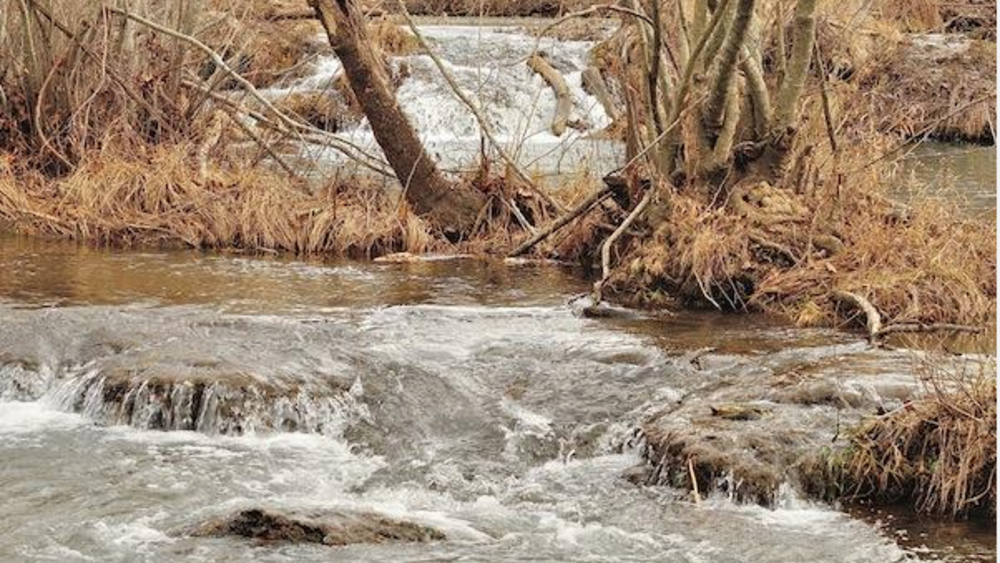
Chickasaw Fishery Saves Endangered Species While Sustaining Fishermen and Tourism
Nothing elevates the hope and heart rate of an angler more than hearing that first predawn “ZWIIINNGGG” of a casting reel as fishing line slices through the early morning air and the lure plops into the water. Whether it’s the first or last day of the season, fishermen hope that is a dinner bell…
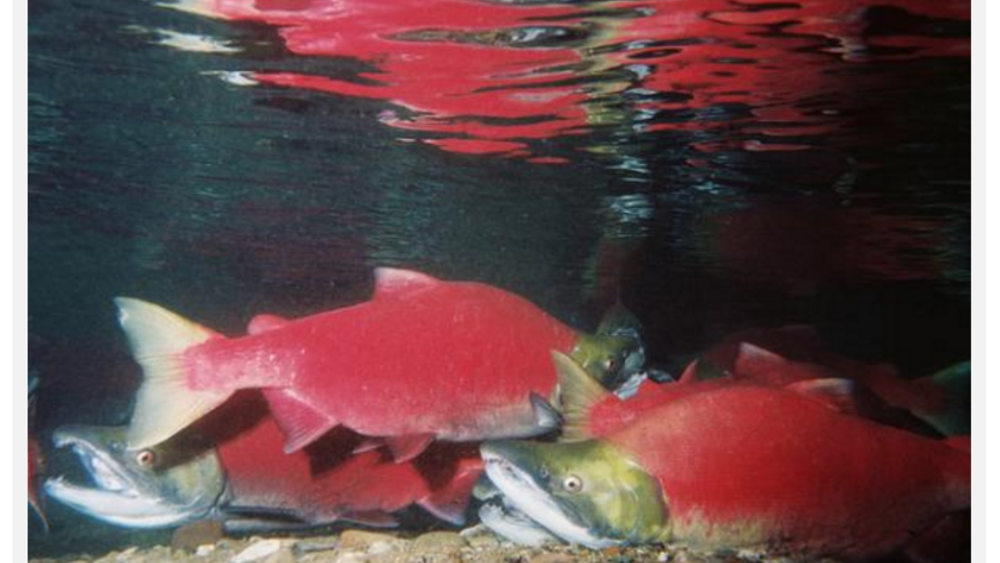
Fisheries Are the Lifeblood of the Nez Perce Economy
The Nez Perce Tribe has the second largest economic impact in North Central Idaho and is the third largest employer in the region. The massive fisheries program which employs upwards of 180 people is a major contributor to those statistics. Fish have always been vital to the tribe. Salmon in…
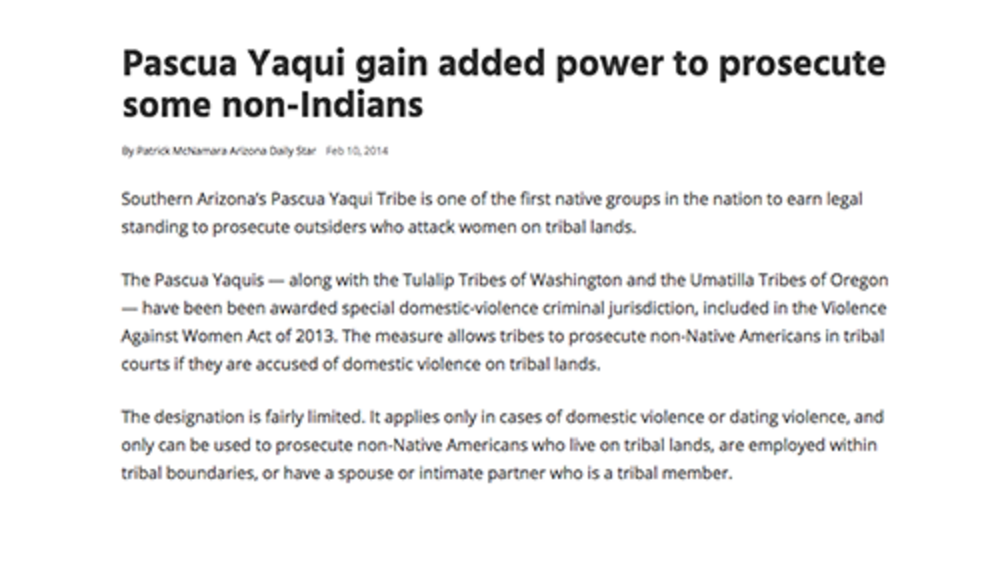
Pascua Yaqui gain added power to prosecute some non-Indians
Southern Arizona’s Pascua Yaqui Tribe is one of the first Native nations in the country to earn legal standing to prosecute outsiders who attack women on tribal lands. The Pascua Yaquis – along with the Tulalip Tribes of Washington and the Umatilla Tribes of Oregon – have been been awarded special…
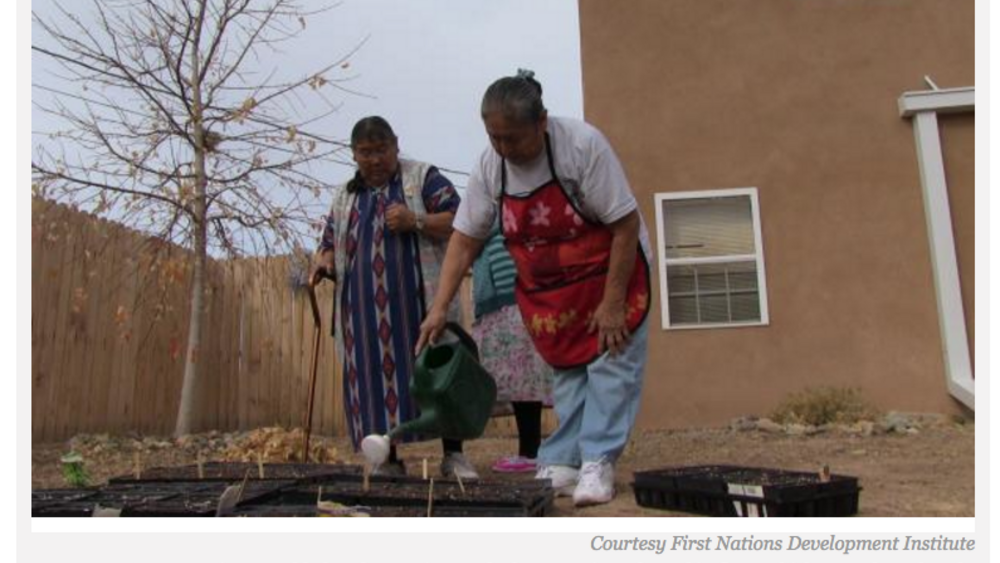
Winona LaDuke: Keep USDA Out of Our Kitchens
Native American author, educator, activist, mother and grandmother Winona LaDuke, Anishinaabekwe, is calling on tribes to relocalize food and energy production as a means of both reducing CO2 emissions and of asserting tribes' inherent right to live in accordance with their own precepts of the…
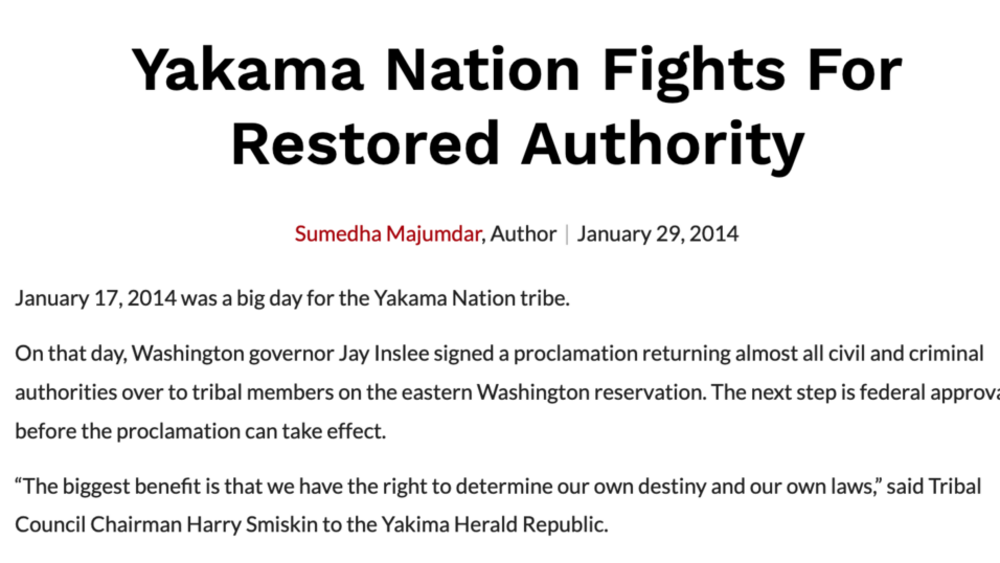
Yakama Nation Fights For Restored Authority
January 17, 2014 was a big day for the Yakama Nation tribe. On that day, Washington governor Jay Inslee signed a proclamation returning almost all civil and criminal authorities over to tribal members on the eastern Washington reservation. The next step is federal approval before the proclamation…
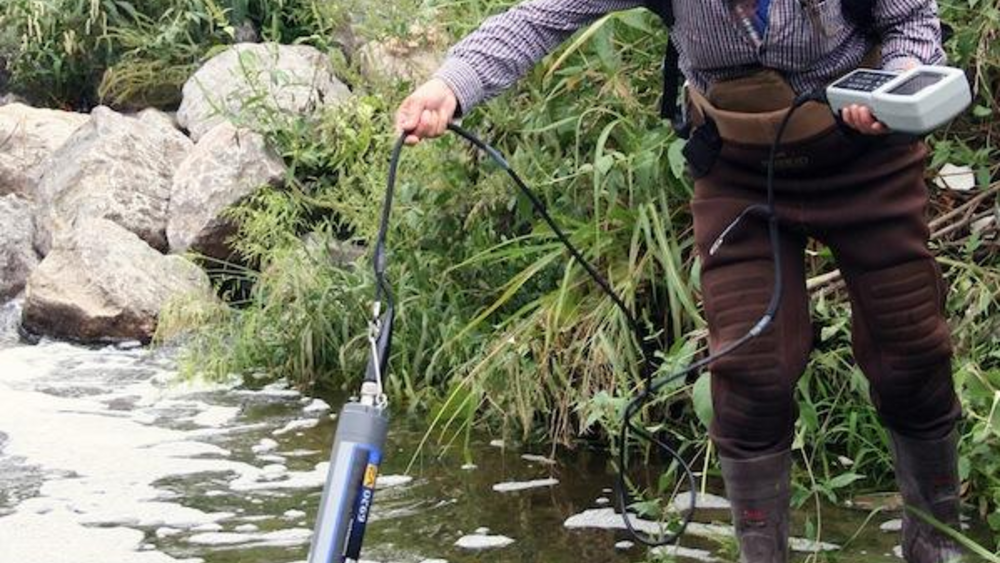
Citizen Stewards: Chickasaw Nation Technicians Monitor Water Quality
Regulations and laws about environmental quality abound, yet the Chickasaw Nation has little use for them. Its citizens do not need legislation to inform them that they are stewards of the land. It is, of course, an immutable fact of existence. And Chickasaw Nation Environmental Services…
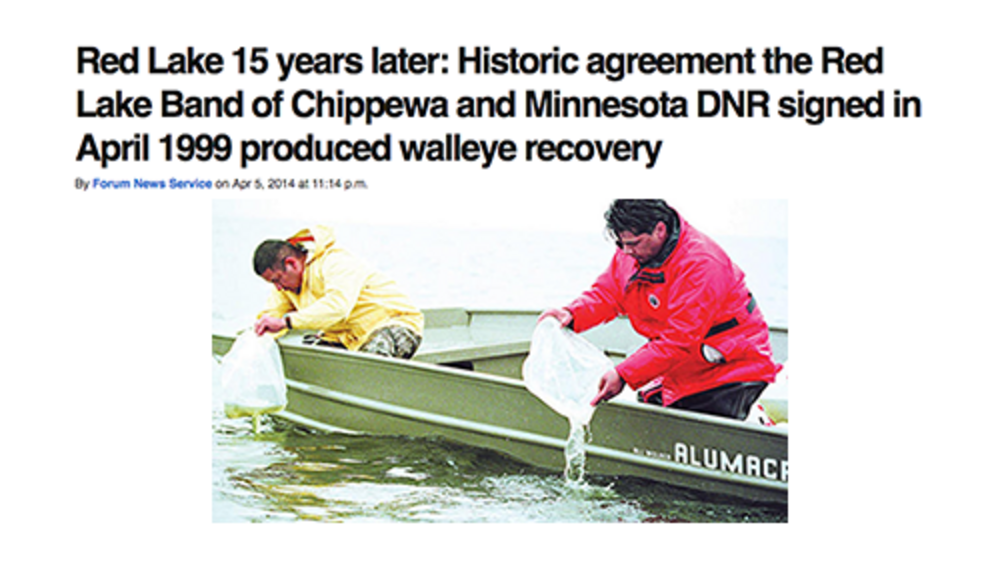
Red Lake 15 years later: Historic agreement the Red Lake Band of Chippewa and Minnesota DNR signed in April 1999 produced walleye recovery
As Al Pemberton recalls, it was about three years after the Red Lake Band of Chippewa and the Minnesota Department of Natural Resources signed an agreement to restore walleye populations in Upper and Lower Red lakes that he saw the true potential for the big lakes’ recovery. The agreement, which…

Collectively Managing Allotment Lands Is Better
Indian allotment holders are not making enough money from their allotments. One way for tribal allotment holders to gain more economic income from their allotments is to organize a corporation under tribal law and collectively manage allotted lands in order to gain more income for allotment holders…
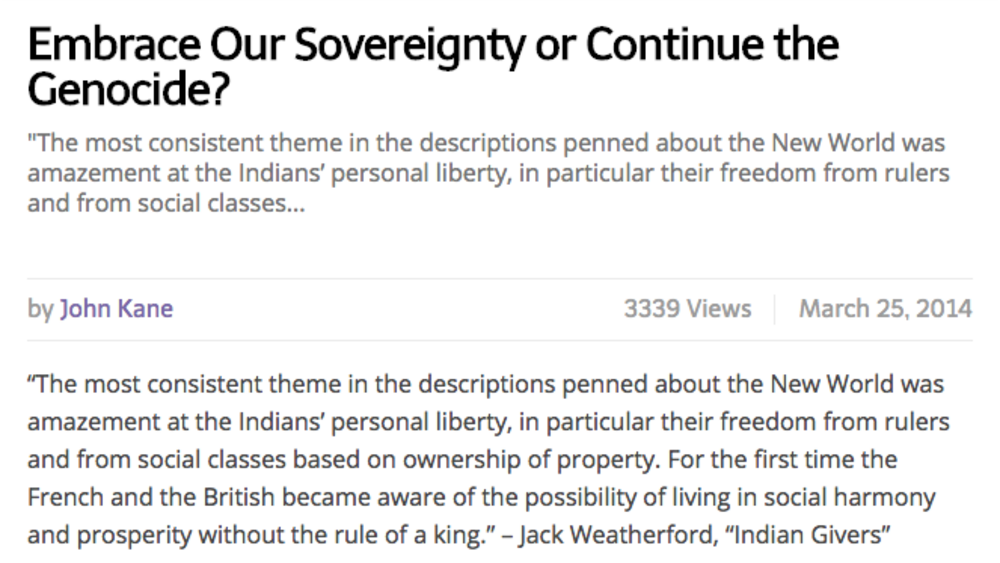
Embrace Our Sovereignty or Continue the Genocide?
“The most consistent theme in the descriptions penned about the New World was amazement at the Indians’ personal liberty, in particular their freedom from rulers and from social classes based on ownership of property. For the first time the French and the British became aware of the possibility of…

The Bay Mills Buck Stops With NIGC
With a case of potentially catastrophic consequence for Indian country now pending before the U.S. Supreme Court, all of the players who can possibly prevent the disaster are either sitting on their hands or pointing fingers. The National Indian Gaming Commission has failed to act, citing a…
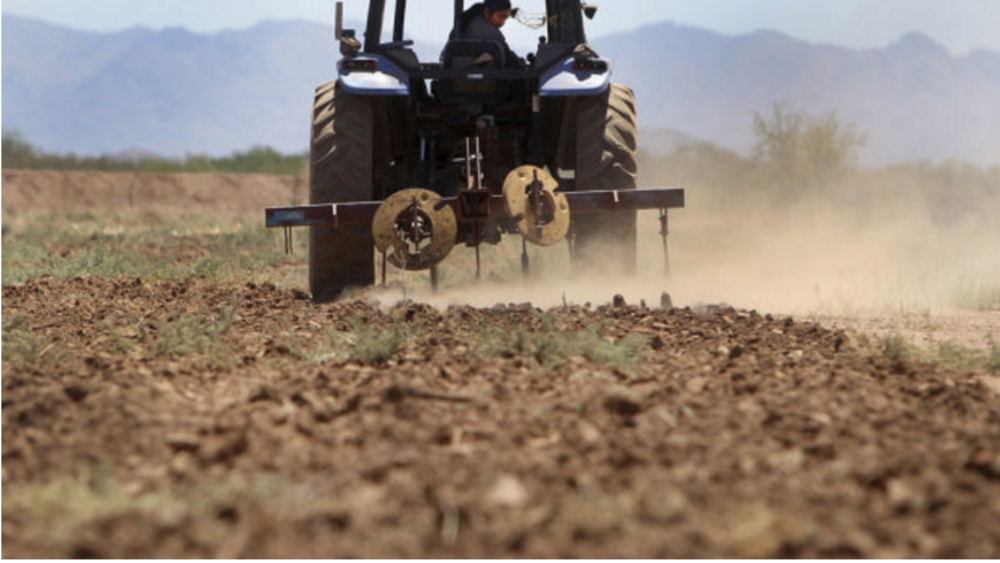
A Solution: Sowing the future for tribal youth
For aspiring farmer, Vernal Sam, 24, the physical labor came easily. Like many Tohono O'odham, he'd helped out on his uncle's cattle ranch as a kid, bringing in cash when his family needed it, and he'd helped his grandfather bury traditional tepary beans and squash seeds in the brown clay soil.…

How Tribal Leaders Are Creating Jobs
The New Markets Tax Credit (NMTC) has provided a vital spark to infrastructure and economic development projects across Indian country. Momentum has been building over the past several years but because of recent federal agency actions, and now tax-related Congressional bickering, it is in danger…
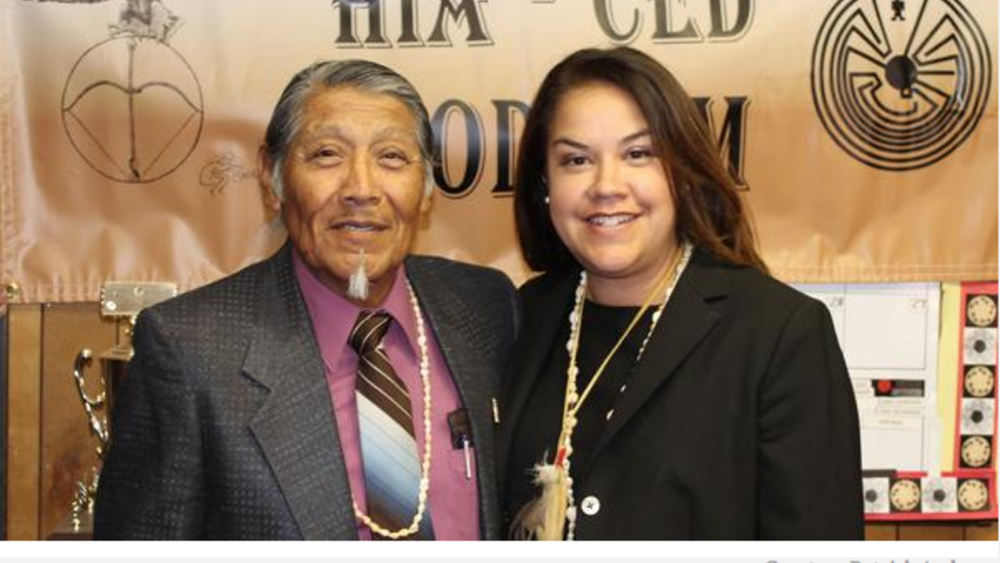
Extinct No More: Hia-Ced O'odham Officially Join Tohono O'odham Nation
After 33 years of hard work to right the past, the Hia-Ced O’odham, once thought to be extinct, can finally say they belong as part of the Tohono O’odham Nation. On June 12, the Hia-Ced O’odham District officials were sworn-in and the Hia-Ced District was officially recognized as the 12th district…
Pagination
- First page
- …
- 6
- 7
- 8
- …
- Last page
